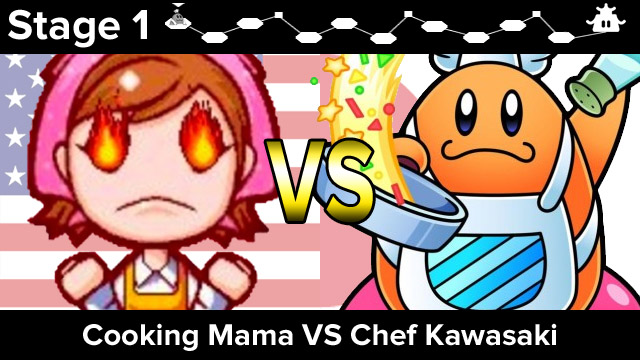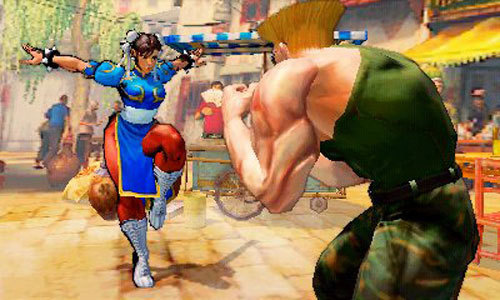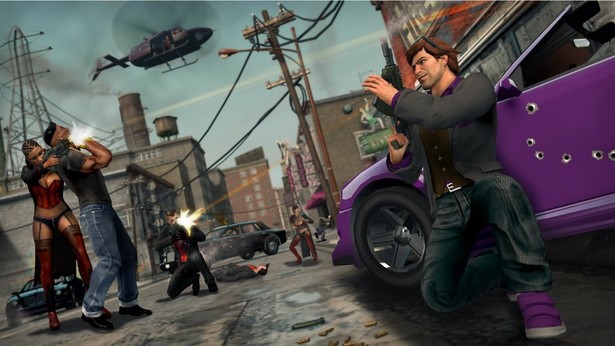
A topic that continues to be common within the gaming world is the apparent diminished impact of Japanese developers on the modern gaming landscape. Western developers have dominated the prominent trends of online shooters, open world adventures, choice driven stories, and the growing market for quick and casual mobile games. Japan has dabbled with these elements with varying degrees of success, but most would argue that they have largely missed the boat, with some even jumping aboard the wrong boat entirely, alienating fans with brash but poor decisions or stubbornly sticking to antiquated ideals. Many classic franchises still pull their weight, but the West is responsible for the bulk of newer success stories.
That being said, this article isn’t about Japan’s failure in the face of western success; instead it is about one instance of American and European developers missing a major opportunity. The launch of a new console always presents considerable risk, but that comes with equal amounts of potentially profitable opportunity. When 3DS launched about a year ago it was no different, and when the going got tough and western developers backed down at the fear of losses, it was the stalwarts of the Japanese gaming industry who would ultimately benefit from the system’s late 2011 turn around.

The first sign of Japan’s whole-hearted support of 3DS
From the very get go, it was obvious that Japan’s most venerable developers were excited for 3DS. Nintendo of course had plenty to show for the system, but it was the rest of the industry that proved quite surprising, with many developers throwing both the expected and unexpected into the mix. Capcom was prepping console quality Resident Evil titles along with a feature-complete port of Street Fighter IV, Tecmo was bringing a new Dead or Alive to the system, and Konami remaking arguably the most loved entry in its most loved franchise, Metal Gear Solid 3.
Back on this side of the Pacific, support was still quite evident but the level of enthusiasm obviously wasn’t as significant. Ubisoft was by far the biggest supporter, but that was primarily from quantity and not necessarily quality. Ghost Recon: Shadow Wars was a pleasant surprise, but the rest of their offerings raised eyebrows; Rayman 2 had already been remade numerous times, Splinter Cell 3D proved underwhelming, Asphalt 3D was a poorly done port of a iOS and Android game, and similar things could be said for the rest. Electronic Arts didn’t bring nearly as much mass to the launch, but it didn’t bother to up the quality to make up for it; instead choosing to bring two mediocre entries in the wildly successful Madden and Sims series. And then of course there is the biggest publisher of them all, Activision, who simply ignored the new hardware.
Some measure of trepidation around a new hardware launch is understandable, but it is surprising just how quickly interest in 3DS fell apart. Few would argue that 3DS’ launch was a rousing success, with the West’s lackluster support probably being a contributing factor, and the speed with which they seemingly abandoned the system did little to add to one’s confidence in the fledgling system. Ubisoft had been planning a 3DS entry in their hugely successful Assassin’s Creed franchise that disappeared into the ether and THQ canceled a handheld take on Saints Row.

Saint’s Row the Third was a major hit, too bad its 3DS companion piece was canned
Japanese developers, on the other hand, shook off the initially poor performance of 3DS and stuck to their plans to expand their popular franchises on the system. While Americans and Europeans were changing their plans, the Japanese kept on developing, taking their time to ensure Resident Evil: Revelations, Metal Gear Solid 3, Kingdom Hearts: Dream Drop Distance, and a host of other titles would be the best they could be once they made their way to market. When the holiday season rolled around, Japan’s patience paid off. Led by a stellar lineup from Nintendo, 3DS took off at an unprecedented pace, going from the whipping boy of financial analysts to outpacing its hugely successful predecessor, Nintendo DS, over the course of a few quick months. Many big titles have come out over the last few months to a massive market of new 3DS users and many more will be out in the near future as that market continues to grow.
But what did the Western developers miss out on? Let’s look at EA first. As 3DS was taking off in the fall and holiday season, EA was busy releasing its yearly Madden, NHL, NBA, and other sports titles, none of which appeared on 3DS. Madden of course was around for a launch, but EA once again chose to give Nintendo fans a watered down, more cartoony version of the series. In its defense, EA did release an okay take on Need for Speed: The Run and add another Sims expansion to the library, but that was it. I don’t think anybody was necessarily demanding a 3DS port of Battlefield 3, but EA has a stable of great franchises and developers at its disposal (Dead Space, Mass Effect, and everything else BioWare related) that could have been great both for 3DS and EA.

Dead Space, better suited for iPhone than 3DS apparently
And what of Ubisoft; it might have felt burned after the torrent of launch support failed to drive hardware and software sales but it must have realized that those weren’t its best efforts. Granted, it tried to keep things going with iterations of Rabbids and Driver, but both once again reflected the same lackluster effort showed in many of its launch titles. Had Ubisoft kept its 3DS Assassin’s Creed project alive, it could have been something special with the proper effort. 3DS continues to lack a big, open, high concept, action adventure experience like what the Assassin’s Creed series has always offered. Releasing an ambitious project in keeping with the franchise’s high expectations would undoubtedly have been a rousing success, but instead Ubisoft chose to bet against 3DS and lost big time.
Activision probably deserves the most credit of the major Western publishers; it kept Spider-Man: Edge of Time equally mediocre across all platforms and then managed to land major, universal cross platform success with the latest Spyro game and its matching set of Skylanders toys which struck a chord with millions of children of all ages, with equal love for games and action figure collecting. However, it still missed a major opportunity in the form of Call of Duty. Activision had always kept gaming’s biggest franchise active on DS and it continued to do exactly that again, ignoring the obvious advantages in visuals, processing power, and online functionality provided by 3DS. While the DS CoD entries have always been decent little distractions, 3DS offered the first real opportunity to create a truly outstanding handheld FPS experience, but Activision chose to pass on it.
To be fair, a couple smaller, longtime Nintendo supporters (Renegade Kid, Wayforward, and Gaijin Games) provided some great experiences in downloadable and/or niche releases, but the big guys dropped the ball. After a lackluster launch and a few slow months, America’s biggest players were blinded by potential risk and backed out, ignoring opportunities and canceling ideas with potential promise. Fortune, of course, smiled in Nintendo’s favor and the later months of 2011 proved immensely successful, drastically expanding a 3DS user base hungry for the wave of big titles coming from Japan’s steadfast developers. Had EA, Activision, and Ubsioft showed similar gumption, they too could be capitalizing on that market instead of having to play catch up on a system that is moving on without them.




 ShareThis
ShareThis







One thing that strikes me as odd is how this is the second time that many developers have overlooked a Nintendo system.
Remember how several publishers including EA admitted they didn’t predict that Wii would be successful and weren’t ready to capitalize with games for the system when it started setting sales records? Now 3DS is in the same position with gamers hungry for quality software, and they aren’t in position *again* to take advantage of that demand.
How does the saying go: Twice bitten and you’d better not be shy for Wii U launch?
(Granted, 3DS didn’t have the same hot start that Wii did and needed a price cut to start really moving units… but the end results of “best ever” first year hardware sales are still telling.)